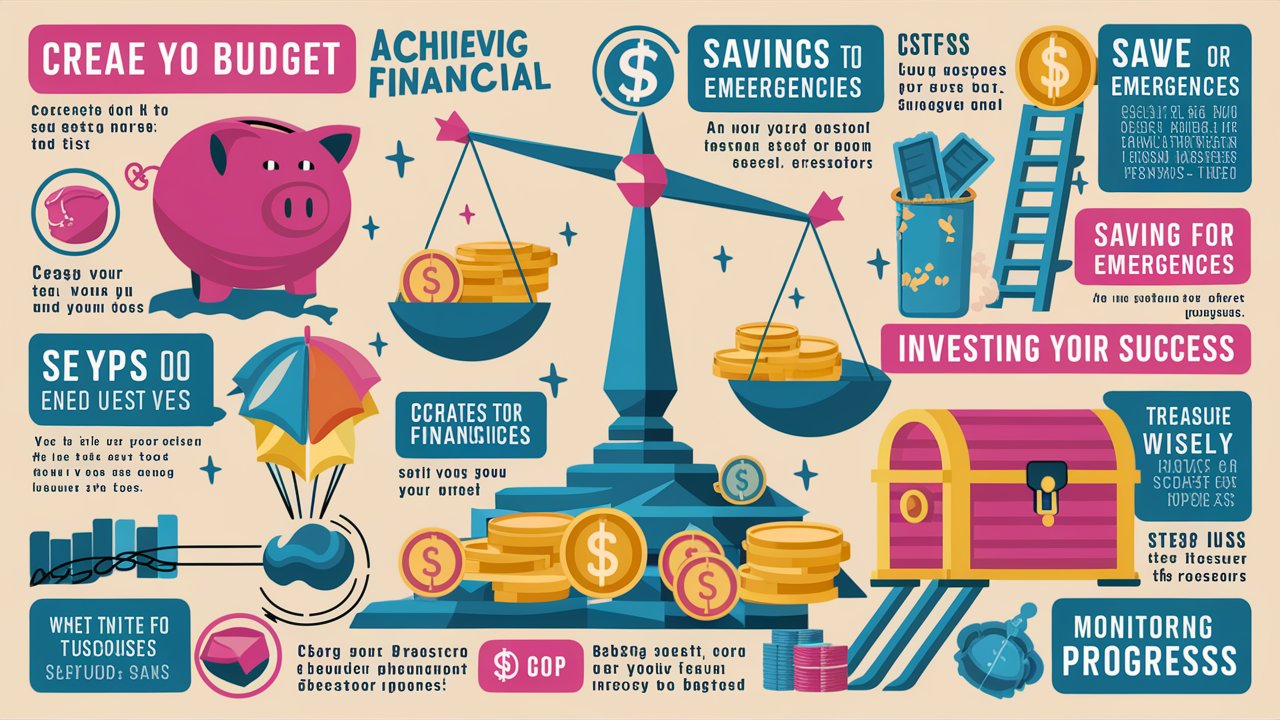
Within the ever-evolving landscape of private finance, the ability to set and reach economic aims stands as a cornerstone of economic protection and independence. Comprehending the distinction involving short-term and extended-expression plans is essential for crafting a strong fiscal system that caters to both instant wants and long run aspirations.
Understanding Monetary Objectives
At its core, economic purpose placing consists of pinpointing your economical needs and aspirations and devising a plan to achieve them. This process begins with a radical idea of your present-day economical situation, such as earnings, costs, debts, and cost savings. By setting up very clear and achievable targets, you'll be able to produce a roadmap that guides your economic decisions and helps you continue to be heading in the right direction.
The necessity of Placing Fiscal Targets
Setting financial plans is not really almost organizing for the future; it’s about developing a framework that makes certain fiscal stability and advancement. Aims give path and purpose, encouraging you prioritize paying out, saving, and investing. Regardless of whether you’re aiming to pay off credit card debt, preserve for a major invest in, or develop a retirement nest egg, getting perfectly-outlined objectives can inspire you to generate intelligent economical selections.
Short-Expression Monetary Aims
Quick-time period economic plans generally span from the handful of months to a couple of several years. These goals generally concentrate on rapid monetary desires and objectives, for example:
Building an Unexpected emergency Fund: An crisis fund acts being a economical security Internet, masking sudden bills like medical emergencies, auto repairs, or position loss. Authorities endorse saving 3 to 6 months’ truly worth of living expenditures in a very quickly accessible account.
Paying out Off Significant-Desire Debt: Large-fascination personal debt, such as credit card balances, can substantially impression your economical health. Prioritizing the repayment of this sort of financial debt can help you save dollars on desire and unlock means for other Long-Term Goals goals.
Saving to get a Trip or Key Invest in: Shorter-time period plans may include saving for discretionary expenses like holidays, home advancements, or paying for a new gadget. Setting apart a certain total each and every month may make these aspirations attainable devoid of derailing your Over-all money system.
Prolonged-Phrase Economic Objectives
Lengthy-term plans commonly prolong over and above five years and focus on securing your economical upcoming. These ambitions typically include sizeable money commitments and call for disciplined organizing and saving, which include:
Conserving for Retirement: Among the most vital very long-phrase goals is conserving for retirement. Contributing to retirement accounts like 401(k)s or IRAs and Benefiting from employer matching programs Long-Term Goals may also help ensure you have enough methods to maintain your Way of living with your golden many years.
Purchasing a Residence: Purchasing a home is a major fiscal milestone that often necessitates several years of saving and arranging. Comprehending Long-Term Goals property finance loan alternatives, preserving for any deposit, and sustaining a fantastic credit rating are crucial methods towards reaching this target.
Funding Kids’s Education and learning: Whether or not you’re conserving for your son or daughter’s school education or a private university tuition, instruction costs might be significant. Starting off a focused cost savings account, like a 529 approach, will help you Create the mandatory resources as time passes.